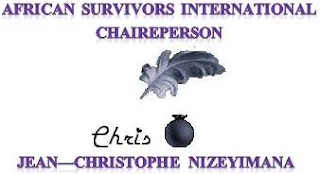A Candle For Remembering

May this memorial candle lights up the historical past of our beloved Country: Rwanda, We love U so much. If Tears could build a stairway. And memories were a lane. I would walk right up to heaven. To bring you home again. No farewell words were spoken. No time to say goodbye. You were gone before I knew it And. Only Paul Kagame knows why. My heart still aches with sadness. And secret tears still flow. What It meant to lose you. No one will ever know.
Rwanda: Cartographie des crimes
Let us remember Our People
You can't stop thinking
Welcome to Home Truths
Everybody Hurts
KAGAME - GENOCIDAIRE
Paul Kagame admits ordering...
Why did Kagame this to me?
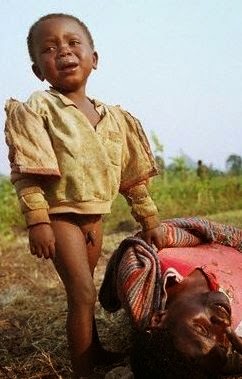
Can't forget. He murdered my mother. What should be my reaction? FYI: the number of orphans in Rwanda has skyrocketed since the 1990's Kagame's invasion. Much higher numbers of orphans had and have no other option but joining FDLR fighters who are identified as children that have Lost their Parents in Kagame's Wars inside and outside of Rwanda.If someone killed your child/spouse/parent(s) would you seek justice or revenge? Deep insight: What would you do to the person who snuffed the life of someone I love beyond reason? Forgiving would bring me no solace. If you take what really matters to me, I will show you what really matters. NITUTIRWANAHO TUZASHIRA. IGIHE KIRAGEZE.If democracy is to sell one's motherland(Africa), for some zionits support, then I prefer the person who is ready to give all his live for his motherland. Viva President Putin!!!
RPF committed the unspeakable
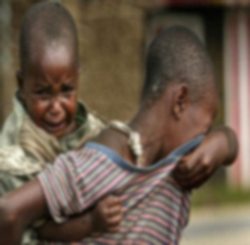
The perverted RPF committed the UNSPEAKABLE.Two orphans, both against the Nazi world. Point is the fact that their parents' murder Kagame & his RPF held no shock in the Western world. Up to now, the Rwandan Hitler Kagame and his death squads still enjoy impunity inside and outside of Rwanda. What goes through someone's mind as they know RPF murdered their parents? A delayed punishment is actually an encouragement to crime, In Praise of the ongoing Bloodshed in Rwanda. “I always think I am a pro-peace person but if someone harmed someone near and dear to me, I don't think I could be so peaceful. I would like to believe that to seek justice could save millions of people living the African Great Lakes Region - I would devote myself to bringing the 'perp' along to a non-happy ending but would that be enough? You'd have to be in the situation I suppose before you could actually know how you would feel or what you would do”. Jean-Christophe Nizeyimana, Libre Penseur
Inzira ndende
Search
Hutu Children & their Mums
Look at them ! How they are scared to death. Many Rwandan Hutu and Tutsi, Foreign human rights advocates, jounalists and and lawyers are now on Death Row Waiting to be murdered by Kagame and his RPF death squads. Be the last to know.
Rwanda-rebranding
Ways To Get Rid of Kagame
- The people should overthrow the Rwandan dictator (often put in place by foreign agencies) and throw him, along with his henchmen and family, out of the country – e.g., the Shah of Iran, Marcos of Philippines.Compaore of Burkina Faso
- Rwandans organize a violent revolution and have the dictator killed – e.g., Ceaucescu in Romania.
- Foreign powers (till then maintaining the dictator) force the dictator to exile without armed intervention – e.g. Mátyás Rákosi of Hungary was exiled by the Soviets to Kirgizia in 1970 to “seek medical attention”.
- Foreign powers march in and remove the dictator (whom they either instated or helped earlier) – e.g. Saddam Hussein of Iraq or Manuel Noriega of Panama.
- The dictator kills himself in an act of desperation – e.g., Hitler in 1945.
- The dictator is assassinated by people near him – e.g., Julius Caesar of Rome in 44 AD was stabbed by 60-70 people (only one wound was fatal though).
- Organise strikes and unrest to paralyze the country and convince even the army not to support the dictaor – e.g., Jorge Ubico y Castañeda was ousted in Guatemala in 1944 and Guatemala became democratic, Recedntly in Burkina Faso with the dictator Blaise Compaoré.
Almighty God :Justice for US
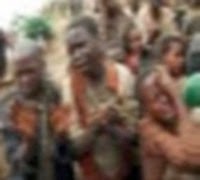
Hutu children's daily bread: Intimidation, Slavery, Sex abuses led by RPF criminals and Kagame, DMI: Every single day, there are more assassinations, imprisonment, brainwashing & disappearances. Do they have any chance to end this awful life?
Killing Hutus on daily basis

RPF targeted killings, very often in public areas. Killing Hutus on daily basis by Kagame's murderers and the RPF infamous death squads known as the "UNKNOWN WRONGDOERS"
RPF Trade Mark: Akandoya
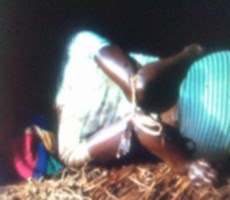
Rape, torture and assassination and unslaving of hutu women. Genderside: Rape has always been used by kagame's RPF as a Weapon of War, the killings of Hutu women with the help of Local Defense Forces, DMI and the RPF military
The Torture in Rwanda flourishes
Fighting For Our Freedom?
We need Freedom, Liberation of our fatherland, Human rights respect, Mutual respect between the Hutu majority and the Tutsi minority
KAGAME VS JUSTICE
The RPF criminal organization and government carried out selective killings of
Hutus, extensive of repression through kidnappings, enforced disappearances,
prisoners’ killings arrests and imprisonments against the opposition through the
well-known Rwandan state media and social
media using RIB and Police persecutions. Here after we truly urge the World
community to apply sanctions that must be complied by all countries against
General KABAREBE, General IBINGIRA, General MUNYUZA, General NZIZA, Tom NDAHIRO,
Jean Damascene BIZIMANA, MUGESERA Antoine, Tito RUTAREMARA, Marie Immaculée
Ingabire, RIB, DMA RPF Representatives for their criminal financing of
terrorist activities, hate-mongering and the prejudice against the majority
Hutu, indoctrination and aiming to raise the RPF genocidal ideology against the Hutu majority and interior Tutsis.
Mr. Paul Rusesabagina, A
Human Rights Activist has been abducted by the RPF criminal and terrorist organization
and government and now he’s illegally imprisoned despite the RPF minister of
Justice has been removed. Mr. PAUL RUSESABAGINA should unconditionally and
immediately be released.
Members of DALFA PARTY HEADED by Mrs.
Victoire INGABIRE UMUHOZA arrested and thfrown into prison
1.
Mr. Sylvain SIBOMANA,
member of the DALFA party
2.
Mr. Alexis RUCUBANGANYA,
Deputy of DALFA Party in the East of RWANDA
3.
Mr. Marcel NAHIMANA,
Secretary General of the DALFA party resident in RUBAVU
4.
Mr. Alphonse MUTABAZI,
Representative of the DALFA Party in the West of RWANDA
5.
Mr. Emmanuel MASENGESHO, Representative
of the DALFA Party in the North of RWANDA
6.
Mr. Hamad HAGENIMANA,
party member resident in NYARUGENGE, Kigali
7.
Ms. Joyeuse UWATUJE,
Personal Assistant to the President of DALFA Party
Mrs.
IDAMANGE IRTAMUGWIZA Yvonne
arrested and thrown into prison for having shared on her Youtube channel the
Truth on the RPF crimes , which are taking place and going on in Rwanda during the Peace time.
Journalistes arrêtés au Rwanda pour avoir
donné la parole à la population, victimes des actes criminels du FPR
1.
Mr. KARASIRA Aimable, University lecturer and Journaliste,
chaine Youtube UKOMBIBONA TV
2.
Mr. Théoneste
NSENGIMANA, Journaliste, chaine Youtube UMUBAVU TV
3.
Mr. CYUMA
HASSAN Dieudonné, Journaliste
investigation, chaine Youtube ISHEMA TV
Mr. HAKUZIMANA Abdul
Rachid, independent political opponent Arrested for having revealed
the Rwandan genocide in the North western region of Rwanda and denounced the
daily hate speech of the RPF Neo-Nazi organization of TERRORISTS since October
1st, 1990 the RPF-UGANDA invasion of RWANDA.
The arrested, DALIFA Party, The
Independent Journalist and other political opponents should be unconditionally released.
The International Community would be legally obligated to intervene and stop
the RPF horrific crimes, which are taking place in Rwanda.
Done in Brussels, November 15th, 2021
"Judi Rever's account of the Rwandan genocide and its aftermath challenges the official narrative""At the end of May 1997, one week after President Mobutu was toppled in a military coup, Judi Rever, a Canadian reporter for RF, arrives in the Democratic Republic of Congo—then Zaire—to cover the unfolding humanitarian crisis. She travels south of Kisangani to refugee camps where Hutu refugees have sought safety after a series of attacks. Here, in the eery quiet of a clearing in the forest, she comes across “dozens and dozens” of survivors. Some have lost their families and others look as though they are “on the verge of death.” They all say they are escaping attacks by the RPF, the Rwandan Patriotic Front, part of the rebel alliance that has overthrown Mobutu (today, the ruling party in Rwanda). Across the border in Rwanda, in a transit camp where Hutus returning from Congo are being registered by the UN, refugees say the same thing: that they fled Rwanda to Congo because the RPF was killing Hutus.
Back in Paris where she lives, Rever tries to piece together what she has seen. In the media and in political and humanitarian circles, there is one narrative: that “an African renaissance” is beginning in the Congo, heralding a “new age of peace and security.” Rever herself believes, like most people, that during the Rwandan genocide the RPF “swooped in and routed Hutu extremists responsible for killing Tutsis and moderate Hutus.” Yet this narrative is “diametrically opposed” to what she has seen in both Congo and Rwanda. Her interviews lead her to question everything she has read about the genocide. What unfolds in the remainder of her book, In Praise of Blood: The Crimes of the Rwandan Patriotic Front, is a detailed account of the RPF and their crimes before, during and after the Rwandan genocide.
Drawing from reports by the International Criminal Tribunal for Rwanda (ICTR), which was set up in the aftermath of the genocide to try Rwandans accused of human rights violations, as well as from select interviews with former intelligence officers and RPF defectors who used to work for Kagame, Rwandans in exile, survivors of massacres, former investigators, academics, and others, Rever’s account reveals the RPF’s methods of operation. It says how they carried out massacres against Hutu civilians “with great precision,” “leaving barely a trace,” what motivated them, and how they managed to evade justice for so many years. Although these crimes have been documented for many years and as early as 1994 by groups including The Human Rights Commission on Rwanda, Amnesty International, the UN, MSF, and a number of notable scholars, In Praise of Blood is notable for providing more information, both “qualitative and quantitative,” about the RPF’s crimes.
A key element to understanding the RPF’s operations during and after the genocide, is its intelligence wing, the DMI (Directorate of Military Intelligence), which Rever describes as the “main instrument through which crimes were inflicted on Rwandans during the genocide” and the “continuing source of control and violence against Rwandans and Congolese.” Investigators for the ICTR found that while the RPF had killed civilians, it was DMI representatives under orders from Kagame who initiated massacres. A controversial revelation in the book, based on the ICTR report and on interviews with former RPF officials, is that a covert group of “technicians” trained by DMI before 1994 were trained to, among other things, infiltrate Interahamwe Hutu militias and incite them to commit massacres against Tutsi civilians. In some cases, she writes, the RPF even actively killed Tutsi villagers in staged attacks that were blamed on Hutu mobs.
Byumba, Giti and ‘claiming land’
Among the many grisly incidents of violence that Rever documents in her book is one which became the “trademark” method that RPF used for killing Hutus: the massacre at Byumba stadium in April 1994, two weeks into the genocide. Thousands of Hutu refugees had fled to Byumba from camps bombarded by Kagame’s forces. After three days without food, RPF soldiers urged them to go to the football stadium of the town, promising food, drink and cooking supplies. After the peasants filed into the stadium and settled down for the night, RPF officers opened fire, killing everyone inside. Bodies were buried, but later dug up and incinerated under Kagame’s orders; Kagame feared that France’s satellite surveillance would find evidence of mass graves. Rever writes that this method of controlling access to an area, luring in large groups of Hutus with promises of food and safety, and then killing them or taking them away to be killed elsewhere, was used across the country during the genocide. The RPF’s success in hiding these crimes depended on concealing the “the evidence by turning human beings into ash.” Sometimes, she writes, the RPF “buried the Hutu dead in graves with Tutsis who had been murdered by Hutu militia.”
In Praise of Blood details several other massacres by the RPF, including at Karambi trading center, where the RPF killed an estimated 3000 people before President Habyarimana’s plane was shot down, at Ruhengeri where DMI units with civilian cadres massacred Hutus in July and August of 1994, at Gabiro in a guest lodge that had once been the home of Rwanda’s king, and at Giti. Giti stands out as a “startling use” of RPF “propaganda” where RPF forces massacred Hutu civilians at a primary school in Giti and then agreed with the town’s mayor that in return for RPF protection, he would be known as the only mayor in Rwanda who had ensured that no genocide against Tutsi took place in his commune.
Why would Kagame’s forces undertake such widespread, targeted and horrific killings? Concerning Byumba, a number of people in the book assert that the RPF’s actions were about “claiming land in Byumba, the breadbasket of Rwanda,” for thousands of Rwandan Tutsis who had grown up in Uganda. Indeed, the narrative thread of RPF’s crimes must be placed in the context of their origins in Uganda, their invasion of Rwanda in 1990 and the decision to shoot down the plane of Rwanda’s president, Juvenal Habyarimana, widely seen as the event that sparked the beginning of the genocide. Although most mainstream accounts of the genocide attribute Habyarimana’s death to Hutu extremists, In Praise of Blood explains through first hand testimonies how RPF engineered the downing of the plane. As soon as it was shot down, between 25,000 and 30,000 RPF troops moved into position to launch an offensive “which would have required weeks of preparation.” Several people interviewed in the book believe that the RPF had one main objective which was to “seize power” and use the “massacres as stock in trade to justify its military operations.”
If indeed that was true, it worked: while international organizations and the UN were aware of some of the massacres by RPF, including at Byumba, the international community viewed these events through a “different moral lens” than they applied to the Hutu génocidaires. Kagame’s killings were seen as “reprisal killings” or “collateral damage.”
Counter insurgency and justice denied
While one might categorize the 1994 killings by the RPF as specific to the violence unfolding in the context of genocide, what happened after the genocide during the counter-insurgency when Kagame sent his troops into the DRC under the pretext of hunting down Hutu génocidaires is arguably more disturbing, perhaps for the simple reason that unlike the genocide, Rever states, it went on with “little outcry from the world,” reaching its peak in 1997.
The 1996 invasion of Zaire forced hundreds of thousands of Hutu refugees to return home and “face a new round of ethnic cleansing.” Rever writes how during this period, RPF killed Hutu civilians in areas under their control “hill by hill,” including near military bases, and in caves where thousands were hiding from Kagame’s soldiers. Meanwhile, Hutu officials who were unwilling to support the Hutu insurgency and joined the RPF were also killed, along with their families. Some of these massacres have been confirmed in reports by Amnesty International.
Among the RPF’s actions in this period included “false flag” operations. In one incident, based on interviews with former RPF intelligence officers, Rever describes how RPF staged an attack on a refugee camp in Mudende, killing hundreds of Tutsis. This helped to demonize Hutus by putting the blame for the attack on Hutu guerrillas and persuaded the US to “continue training RPF soldiers and supplying Rwanda with military material.”
Although the killings in these years targeted not only Hutu and Tutsi civilians, but also UN observers, Spanish aid workers and a Canadian priest, no action was taken against the RPF internationally. As early as May 1994, during the genocide, a UN refugee agency report documented killings by the RPF. After the genocide, in 2006, a French judge, Jean-Louis Bruguière issued arrest warrants against those involved in the shooting down of Habyarimana’s plane and in 2008, Spain issued arrest warrants for 40 of Kagame’s senior commanders, but these did not result in any arrests. Rever writes that authorities in Europe, North America and Africa refused to extradite those implicated. In 1997, when the Canadian priest was killed by RPF and a witness flew to Nairobi to give a statement to the Canadian embassy, there was no follow up.
The latter chapters of In Praise of Blood offer startling explanations of what was happening in the higher echelons of institutions tasked with pursuing the RPF and the “enormous lobbying, money and influence” Kagame used to “penetrate institutions and people in power.” Rever exposes how a clandestine unit, the Special Investigations Unit, which was set up by the ICTR in 1999 specifically to investigate crimes by Kagame’s army and relied on testimonies from Rwandan witnesses in exile, found that their sources were being intimidated and disappeared. The ICTR suspended investigations against Kagame’s commanders in order not to lose the cooperation of the Rwandan government in investigating Hutu génocidaires. Eventually, Rever writes, the SIU was hijacked by Paul Kagame himself, and the Chief Prosecutor, Carla Del Ponte removed from her position “at the behest of the US” after she made it clear that she intended to indict RPF commanders.
In a stunning revelation that demonstrates just how intertwined the relationship between Rwanda and the US was, In Praise of Blood demonstrates how Kagame and the US Ambassador at the time agreed to a deal whereby, rather than going through the ICTR process, the government of Rwanda would have the “opportunity” to prosecute massacres by the RPF. In other words, “the killers would investigate themselves.” Rever writes that the ICTR became essentially “a surrogate of Washington and by extension, Kagame.” The UN tribunal closed in 2015, having convicted 61 people, all of them linked to the former Hutu regime. The trial that Rwanda eventually carried out on its own was seen as a “political whitewash,” even by Human Rights Watch, which Rever demonstrates was primarily interested in massacres of Tutsis in the genocide.
It was not only international institutions and western governments that became intertwined with the powerful interests of the RPF, but also NGOs—specially the London-based organization African Rights which defended the RPF against reports that they had engaged in violence, and was eventually found, according to the book, to be on the RPF payroll. The other organization singled out for their refusal to give adequate weight to the RPF killings is Human Rights Watch which documented RPF killings, but downplayed them as “generalized violence.”
For those implicated in massacres, not only were they not prosecuted, but several moved onto high positions in UN peacekeeping operations; Patrick Nyamvumba who allegedly gave the orders for massacres during the genocide and was in charge of creating units to “screen, mop up and otherwise rid the hillsides of Hutu civilians,” was appointed as Head of UNAMID, the UN-African Union peacekeeping operation in Darfur in 2009. Another man, Jean Bosco Kazura, allegedly in charge of soldiers who killed civilians east of Kigali at the height of the genocide and at Gabiro, became the peacekeeping chief of the UN’s force in Mali in 2013.
The struggle of memory against fear
Any attempt to uncover the carefully buried secrets of a powerful regime is likely to result in reprisals. In Praise of Blood describes what happened to Rwandans who came forward to testify against Kagame and the RPF. While some managed to escape into exile, others were killed, disappeared or imprisoned. Rever writes how she too became a target, not only in Europe where she travelled for interviews, but also in Canada where she received threatening calls singling out her children.
At the end of her book, Rever writes that she chose to focus on the crimes of the RPF and not on the genocide against Tutsis since there already exists a plethora of material about Hutu-on-Tutsi violence. However, for this reason, it is sometimes difficult while reading In Praise of Blood to keep the two narratives in mind and to understand how both unfolded simultaneously within the same time period. Some parts of the book raise questions. For instance, Rever writes that eight per cent of the Hutu population actively engaged in killings against Tutsi and that “the majority of Hutu civilians did not kill their neighbours.” Others, including Mahmood Mamdani, whose book When Victims Become Killers tries to make sense of the killings, assert that contrary to Rever’s claim, hundreds of thousands of ordinary people participated in the genocide.
Other claims in the book which may require further substantiation include a citation from the University of Rwanda which estimates that forty thousand civilians had been killed by the RPF in two regions of the country by early 1993. That is a colossal number by any standard and difficult to understand how such a large number of killings could go unnoticed well before the genocide began. Disputes over numbers are common in the divergent accounts of the Rwandan genocide. Rever estimates that based on her evidence and that of the ICTR investigators, the RPF killed between several hundred thousand and one million people.
In Praise of Blood claims that a parallel genocide against Hutus took place in Rwanda, a claim which has elicited substantial debate from scholars including Claudine Vidal and Filip Reyntjens. Vidal argues that Rever’s book “blurs the line between investigation and indictment” and describes the massacres in such a way as to “classify them as genocide.” Rather than “doing the work of judges” and trying to apply the legal classification of genocide onto the crimes of the RPF, she writes that “journalists and social scientists should be calling for investigations equivalent to those carried out into the Tutsi genocide.” In other words, “There is no need for it to be genocide to justify investigation into these massacres.”
A proper judicial investigation would be required to determine whether or not a genocide against Hutus did take place. Filip Reyntjens at the University of Antwerp argues that although he is not one to advance the thesis of double genocide, the massacres may indeed demonstrate an intention to destroy Hutu, a strong indicator being the separation of Tutsis and Hutus, and the use of help from Tutsis in killing Hutus and sparing Tutsis. Given that the crimes of the RFP will likely go unpunished, and that the judicial truth will not be established, he says, “the historical truth can and must be sought.” To this end, Rever’s work remains significant.
In his book, Mamdani writes that “Violence cannot be allowed to speak for itself, for violence is not its own meaning. To be made thinkable, it needs to be historicized.” In her final chapter, Rever quotes an opposition Tutsi activist who argues that the RPF killings are not reprisals for the 1994 genocide against Tutsis, but rather, revenge for 1959, when waves of Tutsi were forced to flee during the 1959 revolution and the country transitioned from a Belgian colony with a Tutsi monarchy to an independent Hutu dominated Republic. Likewise, in Mamdani’s work, he makes the claim that “The failure to address the citizenship demands of the ‘external’ Tutsi marked the single most important failure of the Habyarimana regime.” There is no doubt that understanding the deeper roots of RPF violence, and by extension, the regime in place today, requires venturing back into the complex and difficult history of Rwanda and the region.
The official narrative of the genocide, which claims that Tutsi victims were rescued from Hutu killers by the RPF, has persisted for decades, rendering the stories of one side continuously visible and subject to official commemoration while actively silencing the memories and stories of the other. This narrative has no doubt served Kagame’s regime extremely well as he continues to receive awards, adulations, over 984 million dollars in aid in 2015/2016 and unwavering support from the likes of Howard Buffet and Tony Blair. Even his decision to rule until 2034, Rever notes has drawn “only tepid criticism” from Washington and London.
In the words of Theodore Rudasingwa, Kagame’s former Chief of Staff, who spoke in the BBC documentary, Rwanda, The Untold Story, “Kagame’s impunity has reached scandalous proportions,” and the cost in terms of lives destroyed in both Rwanda and the DRC has been colossal. In Praise of Blood is a courageous, powerful and meticulously documented work that counters the narrative on which Kagame’s impunity rests, resurrects the memories of countless people, and brings their stories out from the silence and the intricate machinery of fear that the Rwandan regime has worked so hard to maintain".
AS International
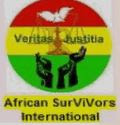
SurViVors SPEAK OUT - Rights of Victims Seeking Justice and Compensation for the RPF Genocide. This is an Exciting Collaborative Project launched by The AS International Founder Jean-Christophe Nizeyimana, Economist and Human Rights Activist. Join US and Be the First to know about the Mastermind of the Rwandan Genocide Still At large and enjoing Impunity.
Profile
Genocide masterminded by RPF
Human and Civil Rights
Rwanda: A mapping of crimes
KIBEHO: Rwandan Auschwitz
Mass murderers C. Sankara
Stephen Sackur’s Hard Talk.
Prof. Allan C. Stam
Prof. Christian Davenport
The killing Fields - Part 1
The killing Fields - Part II
Daily bread for Rwandans
The killing Fields - Part III
Time has come: Regime change
Drame rwandais- justice impartiale
Sheltering 2,5 million refugees
Latest videos
Rwanda's Untold Story
Rwanda, un génocide en questions
Bernard Lugan présente "Rwanda, un génocide en... par BernardLugan Bernard Lugan présente "Rwanda, un génocide en questions"
Nombre de Visiteurs
Pages
Popular Posts - Last 7 days
-
[Since 1994, the world witnesses the horrifying Tutsi minority (14%) ethnic domination, the Tutsi minority ethnic rule with an iron hand,...
-
[Since 1994, the world witnesses the horrifying Tutsi minority (14%) ethnic domination, the Tutsi minority ethnic rule with an iron hand,...
-
This is not an ASI publication. ASI is not responsible for, nor does it endorse, its content. Any views expressed are solely those of the...
-
Professor and Constitutional Criminal Lawyer Peter Erlinder is interviewed by host Karen Redleaf. Watch this video to understand: http://ou...
-
AS International survivors are sincerely thankful for the Guardian Great Job in revealing some Truth about the Rwandan genocide. By Hele...
-
We HAVE A CARD THAT SAYS GET OUT OF JAIL FREE ( dedicated to our Umuhoza, Ingabire yacu still in Kagame’s joal ) We feel t...
-
Kananga foot shufflers, April 19, 2003 Kinshasa, May 4, 2003 » Kigali, Rwanda, April 22, 2003 “How many lives in danger are necessary for a...
-
<===Mon oeil! *** Once uncovered, the Impostor will always flee, but he may return in another form, believe me! *** Depuis quelques jou...
-
[Since 1994, the world witnesses the horrifying Tutsi minority (14%) ethnic domination, the Tutsi minority ethnic rule with an iron hand...
-
by Andy Piascik Hidden genocides: Power - Knowledge - Memeory Genocide denial equation: The irony is palpable. 20 YEARS OF SYSTEMA...







